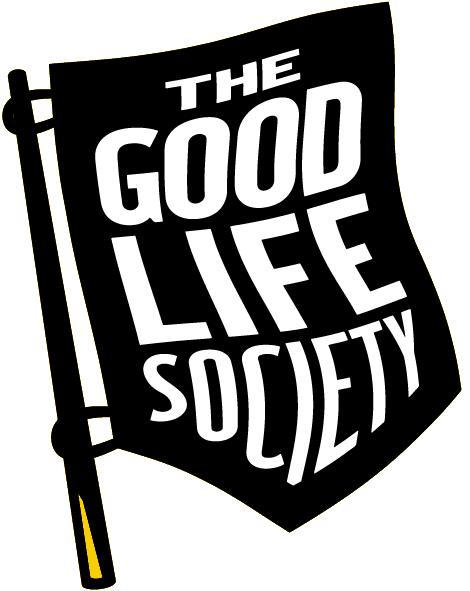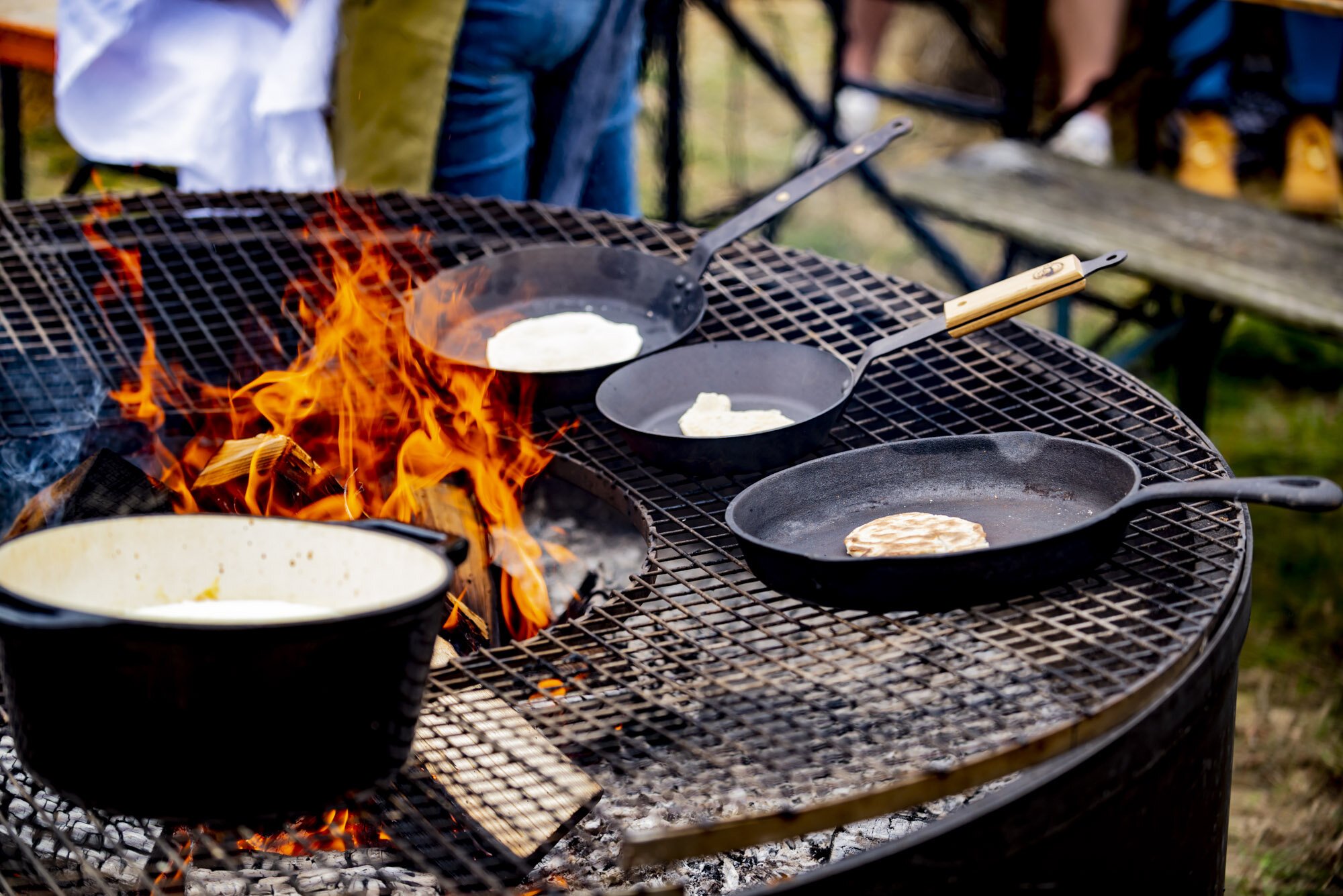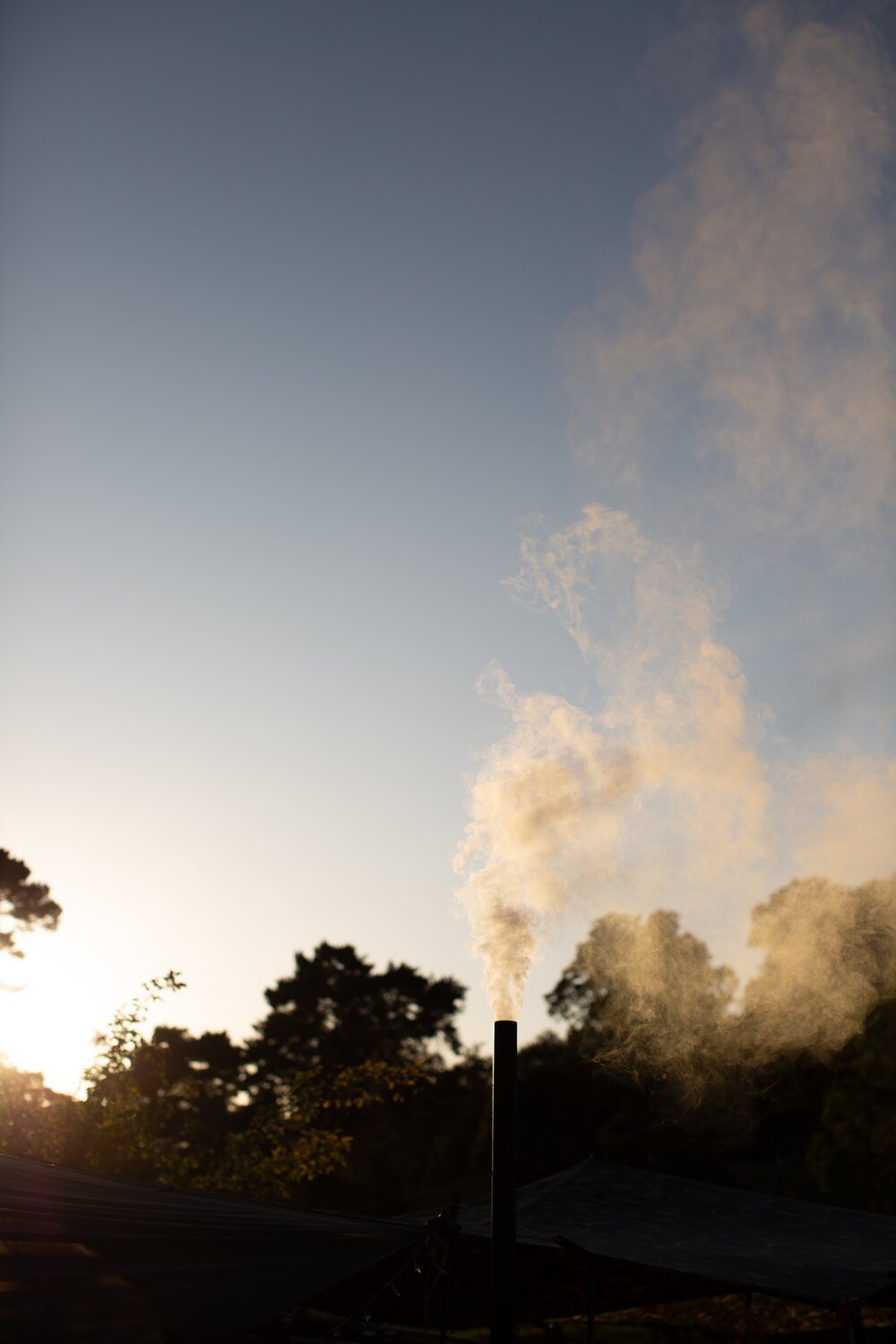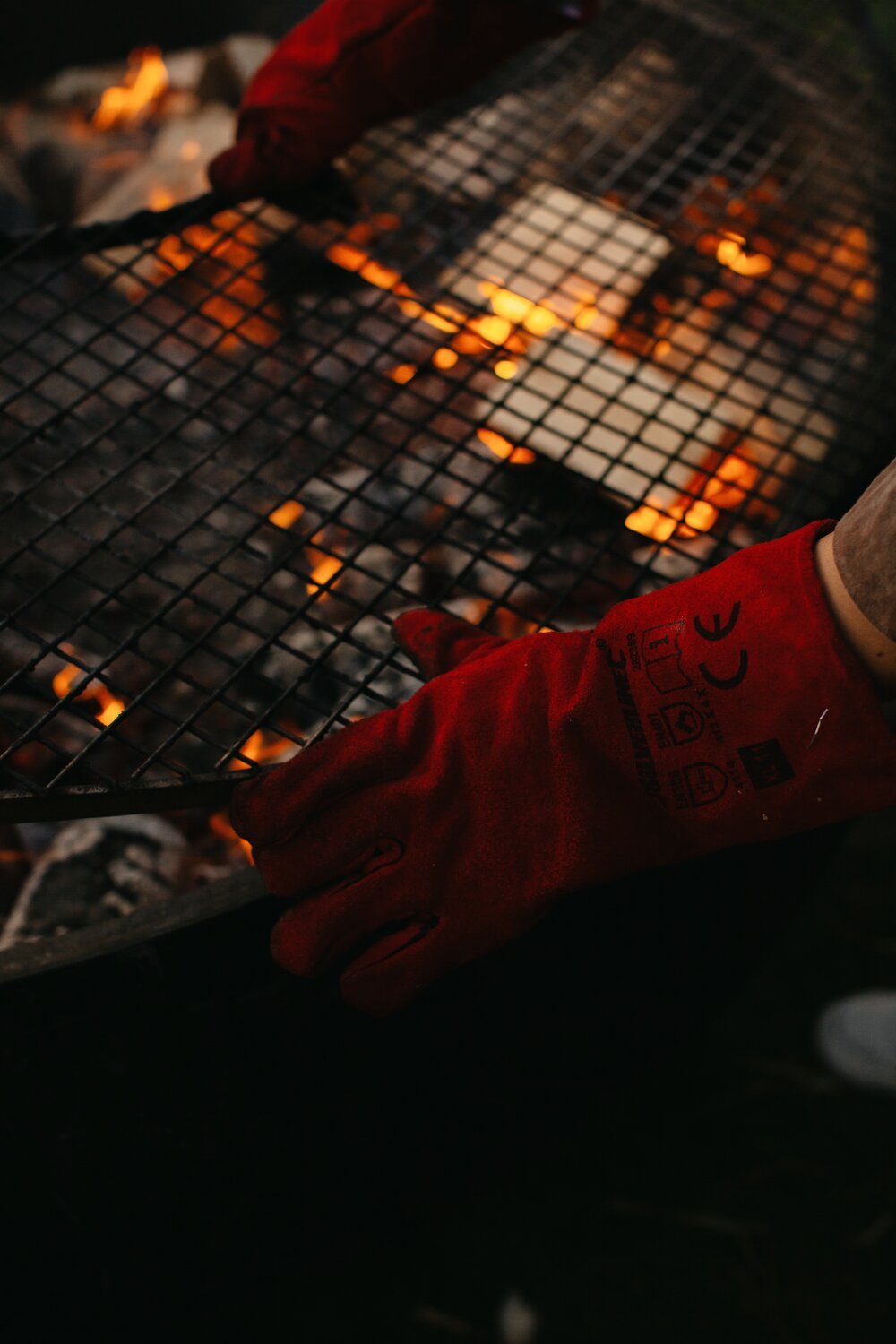Gill Meller’s Thoughts on Cooking Over Fire.
Gill Meller is a chef, food writer and cookery teacher, who has worked closely with the River Cottage team for 11 years. Gill leads a gentler style of cooking, in tune with nature and its seasons.
His book, Root, Stem, Leaf and Flower represents cooking good food that has a positive impact on the world we live in.
A truly wild chef, Gill forages many of his ingredients from the surrounding countryside of his home in Dorset and is often found cooking breakfast, lunch and dinner on driftwood fire down on the beach.
WORDS BY GILLMaking a fire and cooking something good to eat over it is for me, one of the simplest and most natural ways to cook, whenever I get the chance to do it, I revel in the quiet joy it brings me.
I’ve always been excited by fire. Its magic has enticed me and its qualities have captivated me my whole life. When I was three years old, I climbed up onto the kitchen dresser as quietly as I could. I took a large box of ship safety matches from the shelf; I took out a match and struck it. Wow, it was the most incredible thing. Somehow though, I managed to ignite the entire box, all at once. The unruly flash sent me tumbling down to the stone floor below with a thump. Interestingly, I was so full of wonder I didn’t feel a thing.
A little later, at the age of seven, I was cooking grass on my campfire, as you do. It’s a classic recipe, in which grass and rainwater are combined in any quantity you like and boiled for hours. At some point and for no reason I can recollect, I picked up a white-hot stone and really burnt my hand. I went off around the garden like a missile. I remember my grandfather giving me £5 to stop crying, I was really grateful, but it hurt so much I couldn’t.
Since these experiences, fire and smoke have weaved their enchanting way though my life in all sorts of wonderful ways. There’s purity in cooking over fire that I love. Whenever I smell wood smoke in the air it captures my soul for a spell. It whirls me around in its wisps and makes me think of the seasons, warmth, friends and cooking.
IMAGE: DEPARTMENT TWO“I’ve forged a connection with the food I eat and the environment in which I live.”
It goes without saying that I’ve had the pleasure of cooking in lots of fantastic kitchens. They have all been different and they have nearly always been full of passion and creativity. But cooking outside over wood or charcoal is something completely different. It’s far more engaging. I’ve forged a connection with the food I eat and the environment in which I live, that I’d never make using a fan-assisted oven or induction hob inside the four walls of a house. Cooking outside has brought so much to my food, it’s freed me, but at the same time grounded me, It’s pushed me and moulded me, it has helped, in many ways, to define who I am as a chef.
I think it’s fair to say the industrialisation of food production, and the development of processed foods and ready meals means we, in the western world, don’t cook anything like as much as we used to, whether that’s indoors or out. Our modern way of eating has all sorts of environmental, social and health related ramifications, but on top of that, it’s lost a lot of its fun. Where’s the joy? Half the time there’s no thinking involved, no romance, no spirit, no effort, no grit, and in most cases little or no reward.
Sometimes the simplest ways to cook are the most rewarding and mindful. Take a flatbread, cooked on a hot stone in the embers of a glowing fire. This might seem to some, a trivial accomplishment. But for today’s western society, it should be considered anything but. It should represent a way out of our everyday lives. It should open a door into a past many of us think we have no time for.
In some respects that simple act of cooking and eating bread from the fire embodies everything we have, everything we were and everything we will ever be. Right there we see evolution. We see man’s capacity to survive, to learn and to adapt. In the fire we see our ability to control the natural elements, to harness their power and make them work for us.
The bread represents our understanding of ecology and our reliance on the land. We see the domestication of plants and the consumption of their seeds, in short, the very bones of agriculture. Eating the bread symbolises the benefits of investment, but more importantly, our need for sustenance to exist at all, and in turn, and somewhat ironically, our fragility within an ecosystem that some might argue is fractured by our own desire to consume wherever we go.
“All we need to do to master the flames is to practice managing heat and with that, try to simplify the way we think about cooking over fire.”
Like anything, a little practice goes a long way and it’s true, I’ve spent time learning how to cook with fire – it’s not like switching on the electric cooker and waiting for a timer to beep when your food is ready, but it’s not a precise science either. It’s more of an inherent craft or an art. It connects me with my surroundings and unifies my senses. The very act is liberating. For a few hours, I can cast off the walls of convention and with it, slip the tethers of time. I am not constrained there. There’s a freedom in it we’ve forgotten. I become a manager of heat, equating distance over temperature over time. Recipes simply become ideas. Wind and rain, elements I merely balance against wood and charcoal.
The heat from a fire has been harnessed to cook food for millions of years. We were doing it long before we knew how to speak or clothe ourselves; in fact we were pretty good at it. This makes me think that today, given our relative intelligence, cooking over fire should be an absolute doddle. All you need to do is learn to control the heat to your benefit. We’re fairly used to managing heat, as people, we do it all the time. We do it with clothes, boots, hats and scarves. Constantly adjusting and tweaking our outer skins means that we can live comfortably in a range of temperatures. Something as simple as running a bath involves managing heat too.
So, all we need to do to master the flames is to practice managing heat and with that, try to simplify the way we think about cooking over fire. That way we’ll feel more confident. Feeling confident about something means we tend to enjoy the experience and enjoy it with more regularity. And that can’t be a bad thing.




